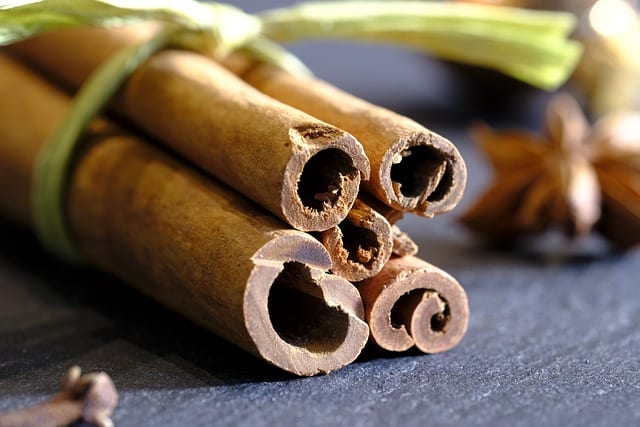Vietnamese cinnamon, also known as Saigon cinnamon, has a long and fascinating history that spans thousands of years. It has a distinct spicy and warm taste with a hint of sweetness and a reddish-brown color. It’s known to be sweeter, stronger and more intense than regular cinnamon.
In this blog post, we will explore the cultural significance of Vietnamese cinnamon, tracing its origins from ancient times to the present day.
Origins of Vietnamese Cinnamon
Vietnamese cinnamon is native to Vietnam and is derived from the bark of a tree called Cinnamomum loureirii. The tree grows in the mountainous regions of northern Vietnam and is known for its distinctive flavor and aroma.
The use of cinnamon in Vietnam can be traced back to ancient times, when it was used for medicinal purposes and as a flavoring agent in food. Cinnamon was highly valued in Vietnam, and it was often used as a gift for kings and other important figures.
5 Delicious Recipes Featuring Vietnamese Cinnamon You Have to Try
Here are five delicious recipes featuring Vietnamese cinnamon that you have to try:
- Vietnamese Cinnamon Apple Pie: This classic American dessert gets a Vietnamese twist with the addition of Saigon cinnamon. The warm, spicy flavor of the cinnamon perfectly complements the sweetness of the apples. Serve with a dollop of whipped cream for a decadent treat.
- Pho Bo: This traditional Vietnamese beef noodle soup features a fragrant broth that is flavored with a variety of spices, including Vietnamese cinnamon. The cinnamon adds a warm, earthy note to the soup and pairs well with the tender beef and fresh herbs.
- Cinnamon-Spiced Coffee: Start your day off right with a cup of cinnamon-spiced coffee. Simply mix ground Vietnamese cinnamon into your coffee grounds before brewing, and add a splash of cream for a rich, comforting flavor.
- Vietnamese Cinnamon Roasted Sweet Potatoes: Sweet potatoes are a nutritious and delicious side dish, and they are even better when roasted with Vietnamese cinnamon. The warm, spicy flavor of the cinnamon complements the natural sweetness of the sweet potatoes, making for a tasty and healthy side dish.
- Cinnamon-Sugar Pecans: These crunchy, sweet nuts are the perfect snack for any occasion. Simply toss pecans with a mixture of Vietnamese cinnamon, sugar, and a pinch of salt, and roast in the oven until fragrant and golden brown. Serve as a party snack or enjoy as a sweet treat anytime.
How to Make Your Own Vietnamese Cinnamon Spice Blend at Home
Can’t find a commercial Vietnamese cinnamon product in the store? Here’s how you can make your own blend.
Making your own Vietnamese cinnamon spice blend at home is easy and requires only a few ingredients.
Here is a simple recipe to follow:
Ingredients:
- 2 tablespoons ground cinnamon
- 1 teaspoon ground cloves
- 1 teaspoon ground cardamom
- 1/2 teaspoon ground nutmeg
Instructions:
- In a small bowl, mix together all of the spices until well combined.
- Store the spice blend in an airtight container in a cool, dry place.
Cultural Significance of Vietnamese Cinnamon
In Vietnamese culture, cinnamon has traditionally been associated with good luck, wealth, and prosperity. It is often used in traditional Vietnamese medicine to treat a variety of ailments, including digestive issues, respiratory problems, and menstrual cramps.
Cinnamon is also a popular ingredient in Vietnamese cuisine, where it is used to add flavor and aroma to a variety of dishes. Some popular Vietnamese dishes that feature cinnamon include pho, a traditional Vietnamese soup, and thit kho, a savory pork dish.
Today, Vietnamese cinnamon continues to be an important part of Vietnamese culture and cuisine. It is also widely used in other parts of the world, particularly in baking and spice blends.
Health Benefits of Vietnamese Cinnamon
In addition to its cultural significance, Vietnamese cinnamon also has a number of potential health benefits. Studies have shown that cinnamon may help lower blood sugar levels, reduce inflammation, and improve brain function.
Cinnamon is also a good source of antioxidants, which can help protect against cell damage and may reduce the risk of chronic diseases such as heart disease and cancer.
Final Thoughts
Vietnamese cinnamon has a rich and storied history that spans thousands of years. From its origins in ancient times to its use in modern cuisine and medicine, cinnamon has played an important role in Vietnamese culture and society.
Today, Vietnamese cinnamon continues to be an important ingredient in many traditional Vietnamese dishes, as well as in international cuisine. Whether you are a fan of Vietnamese cuisine or simply appreciate the rich history and cultural significance of this beloved spice, Vietnamese cinnamon is sure to delight your taste buds and enrich your life.

